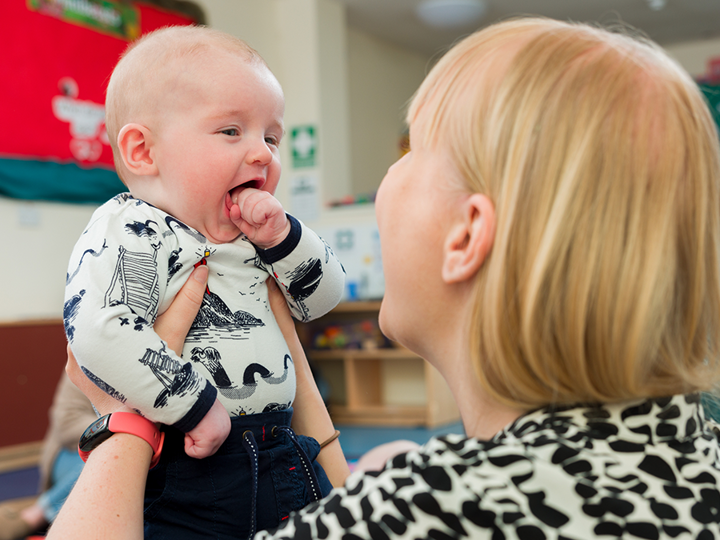Building a relationship with your baby
- 0-1 Years
- Behaviour, emotions and mental health

Bonding is the emotional connection you have with your baby. Some parents find it easy to bond with their baby. For others, this process can take time, or might feel challenging. Building a relationship with your baby depends on lots of things, including:
- spending time with them
- getting to know them
- learning to understand what they need when communicating with you
- how you are feeling
Explore the topics on this page:
The importance of bonding
They might not know how to talk, but babies are born ready to communicate with people around them. They are interested in the people who are looking after them. Parents, carers and relatives help babies feel safe and loved, and are important for supporting their development.
Babies brains grow at their fastest from birth up until around 2 years old. They continue to grow quickly until the age of 5 or 6. This means their early experiences are very important for shaping how they develop. Lots of positive interactions between babies and their parents and cares will help develop the connections in their brain. These connections help them to become healthy and capable as they grow
Healthy early relationships
It's important for babies to build early healthy relationships with parents and carers.
-
A supportive relationship shapes how babies and children feel about themselves and others. It can help them feel content, understood and safe. When they feel comfortable, they will feel able to explore and engage with other people and new things.
-
A strong, warm and loving relationship helps babies understand and express their feelings. Learning about emotions with their parent or carer means they'll be better able to understand other people's feelings.
-
A healthy and positive relationship teaches babies how to interact successfully. Feeling loved and respected, helps develop a sense of self-worth. This also helps them develop positive social skills that will support future relationships.
Understanding your baby's cues
Paying attention to your baby’s body language can tell you what they need. Take time to watch your baby, and wonder about what they are thinking and feeling.
Here are some of the signs you might be able to spot in your baby.
Signs your baby may be hungry include:
- open mouth
- rooting which means turning to the breast or bottle
- putting their hands to their mouth
- stretching or fidgeting more than usual
Read more about feeding cues and signs of getting enough milk.
Some signs your baby may be tired include:
- pulling at their ears
- fluttering their eyelids
- yawning
- jerking their arms or legs
- a distant gaze or facial expression
Some signs your baby may be ready to play include:
- eyes are open and wide
- making eye contact with you
- making little noises
- stretching out their arms
Some signs your baby may need a break include:
- looking away
- using their arms to push away from what they have been doing
- arching their back
- fussing or wriggling more
- making a whimpering sound
Sometimes, you may not know what your baby wants. This is normal as no one could know what they need all the time.
Ideas for bonding and interacting
Bonding with your baby is a process. It takes time and doesn't happen all at once. As a new parent or carer it can take time to understand your baby and learn to interact with them. Try to be gentle with your expectations of yourself and your baby.
There are lots of ways to support bonding with your baby. Have a go at some of these activities, to support your babies’ development.
